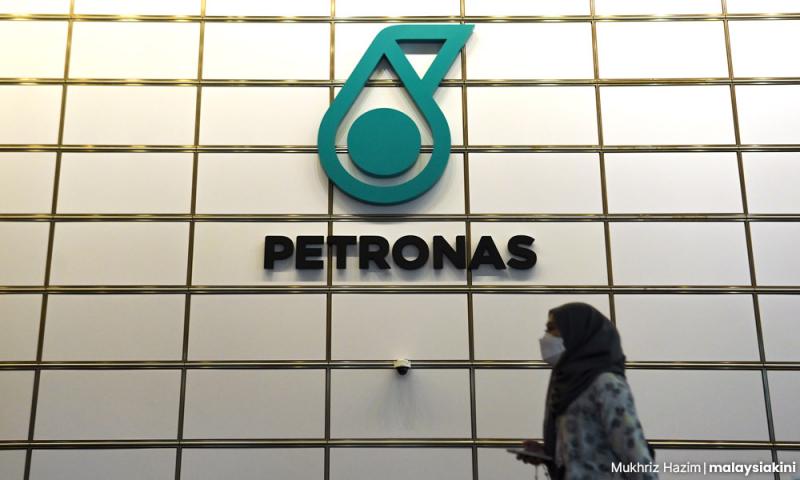LETTER | End the carbon capture greenwash
LETTER | We, the undersigned, are concerned that the National Energy Transition Roadmap (NETR), which aims to support the government’s commitment to achieving net-zero greenhouse gas (GHG) emissions by 2050, identifies carbon capture and storage (CCS) as one of its six levers, and the Petronas Kasawari CCS project as one of its 10 flagship projects.
On behalf of the signatory organisations, we call on policymakers and corporations to recognise that:
CCS proponents are not telling the full story
Petronas boasts that the Kasawari CCS project will capture 3.3 MtCO2e annually from gas extraction in the Kasawari field, however, CCS is only able to capture operational CO2 emissions and excludes scope 3 emissions, which accounts for more than 70 percent of fossil fuel emissions, and non-CO2 emissions such as methane.
CCS will have negligible impact on emission reduction
At the cost of RM4.5 billion, the Kasawari CCS project’s 3.3 MtCO2e target will only reduce annual emissions of the Kasawari field by 14.6 percent (based on our estimates), and reduce 0.9 percent of Petronas’s current emissions, a number too small to be visible on a graph, in a best-case scenario where it does meet its targets.
Worldwide, fossil fuel CCS projects consistently failed
The Institute for Energy Economics and Financial Analysis (IEEFA) found that “underperforming carbon capture projects considerably outnumbered successful ones by large margins”.
Chevron’s USD3.2 billion Gorgon project has only captured half the amount it was designed to. Shell’s Quest CCS project reportedly emitted more CO2 than it removed, while BP’s USD2.7 billion CCS project in Algeria was suspended due to the leakage of CO2 from its reservoir.
Over its 50-year commercial history, CCS costs have not declined at all, making it a “non-improving technology”.
You cannot reduce fossil fuel emissions by increasing fossil fuel production
CCS projects do not support a transition away from fossil fuels. Instead, they serve to give fossil fuel companies a ‘license to pollute’ and an excuse to continue opening new fields such as Kasawari against the recommendations of the Intergovernmental Panel on Climate Change (IPCC) and International Energy Agency (IEA) who have stated that all new oil and gas infrastructure is incompatible with a 1.5-degree target.
CCS impedes transition to renewable energy
Investments in this technology do not make sense given that gas with CCS remains one of the most expensive energy sources in the world, competing with renewable sources such as solar which are nearly USD100 cheaper per mWh7.
The RM4.5 billion invested in Kasawari could have purchased hundreds of MW of solar panel capacity instead.
The problem is not just fossil fuel emissions, it’s fossil fuels
The fossil fuel industry is one of the dominant drivers of anthropogenic climate change. Beyond greenhouse gas emissions, the industry causes deadly air and water pollution and perpetuates environmental injustices.
With or without CCS, to avert the worst impacts of the climate emergency, we need to transition away from fossil fuels completely, not subsidise unproven technologies which will extend the lifespan of an increasingly obsolete industry.
The secretary-general of the United Nations called out the use of CCS by fossil fuel companies as greenwashing. The executive director of the IEA recently implored companies to abandon the ‘illusion’ that CCS is the solution.
We have a very narrow period to keep the 1.5-degree goal alive and we need to stop wasting precious time and funds on CCS. We call on you to:
Stop including CCS in climate targets. Stop subsidising CCS. Stop approving new CCS projects. Re-direct CCS funds to renewable energy investments instead.
Signatories:
RimbaWatch
Klima Action Malaysia (Kamy)
Greenpeace Malaysia
Sahabat Alam Malaysia (SAM)
Youths United for Earth (YUFE)
Center to Combat Corruption and Cronyism (C4 Center)
Bike Commute Malaysia
Sustainable Development Network, Malaysia (Susden)
Grass Malaysia
Jaringan Ekologi Dan Iklim (Jedi)
Pulau Pinang Cerah Asia
Biodiversity. Environment. Agroecology. Climate Change. Habitat (B.E.A.CC.H)
This letter was prepared by RimbaWatch and Greenpeace Malaysia.
The views expressed here are those of the author/contributor and do not necessarily represent the views of Malaysiakini.
RM12.50 / month
- Unlimited access to award-winning journalism
- Comment and share your opinions on all our articles
- Gift interesting stories to your friends
- Tax deductable
